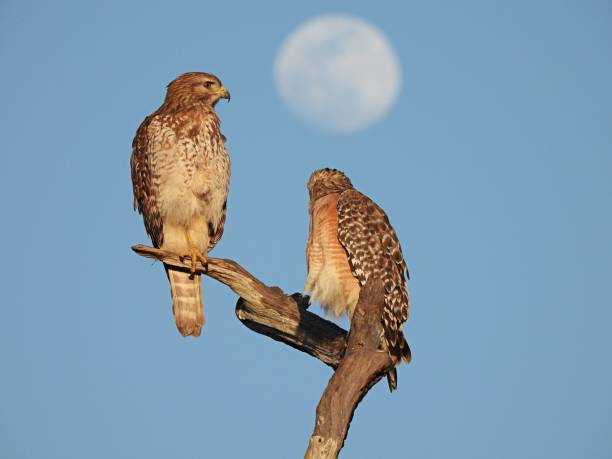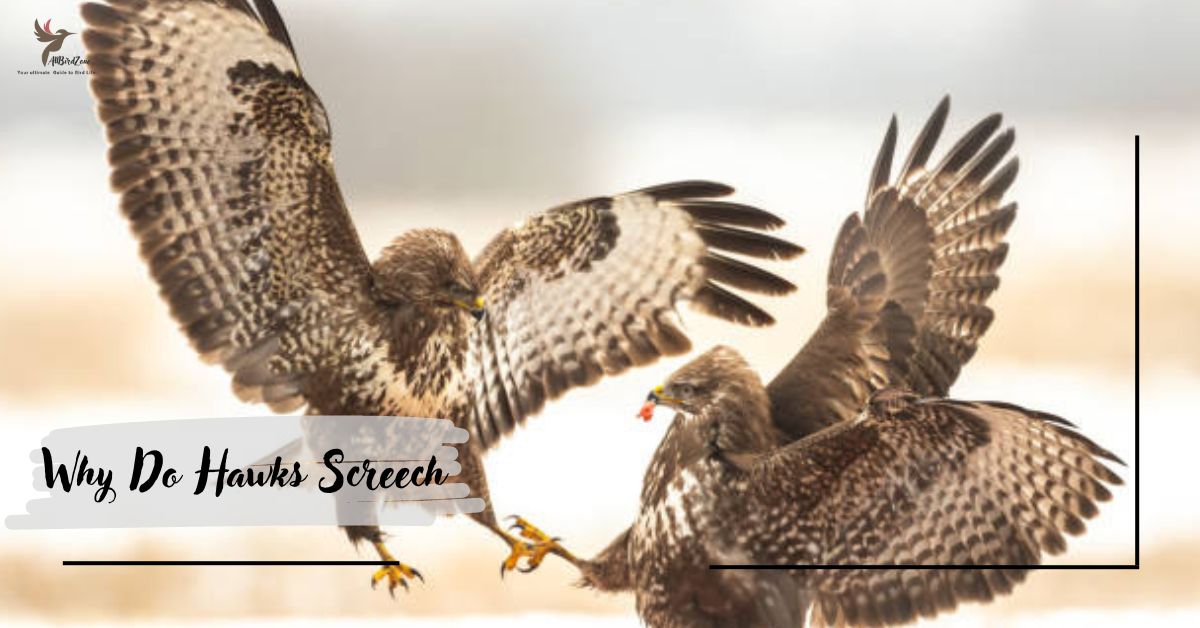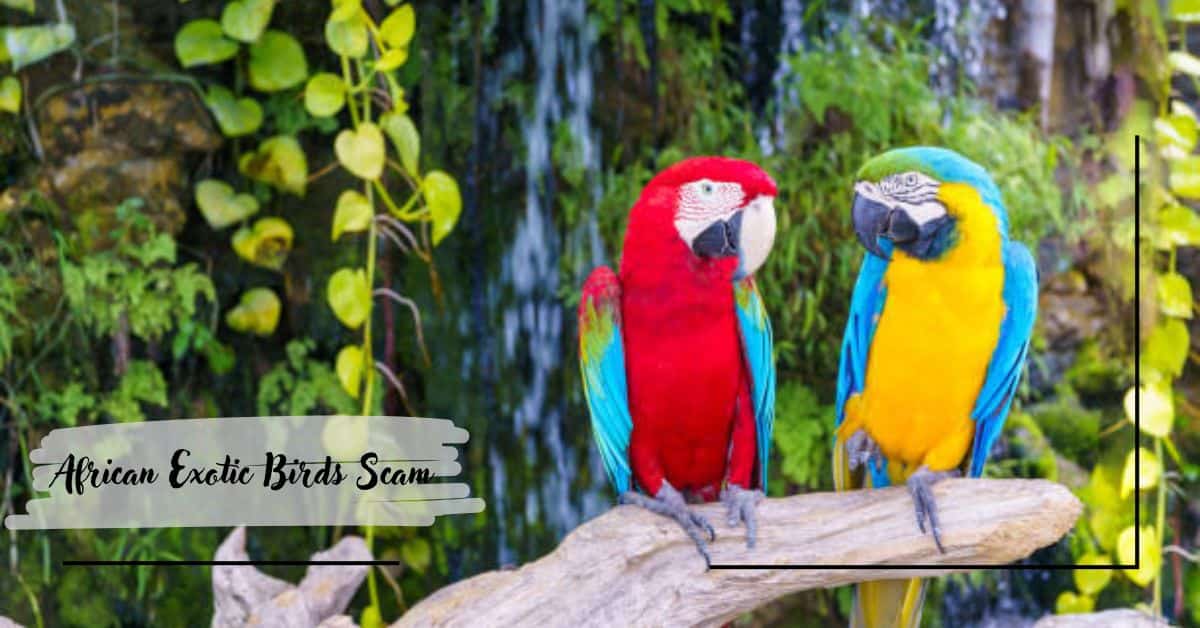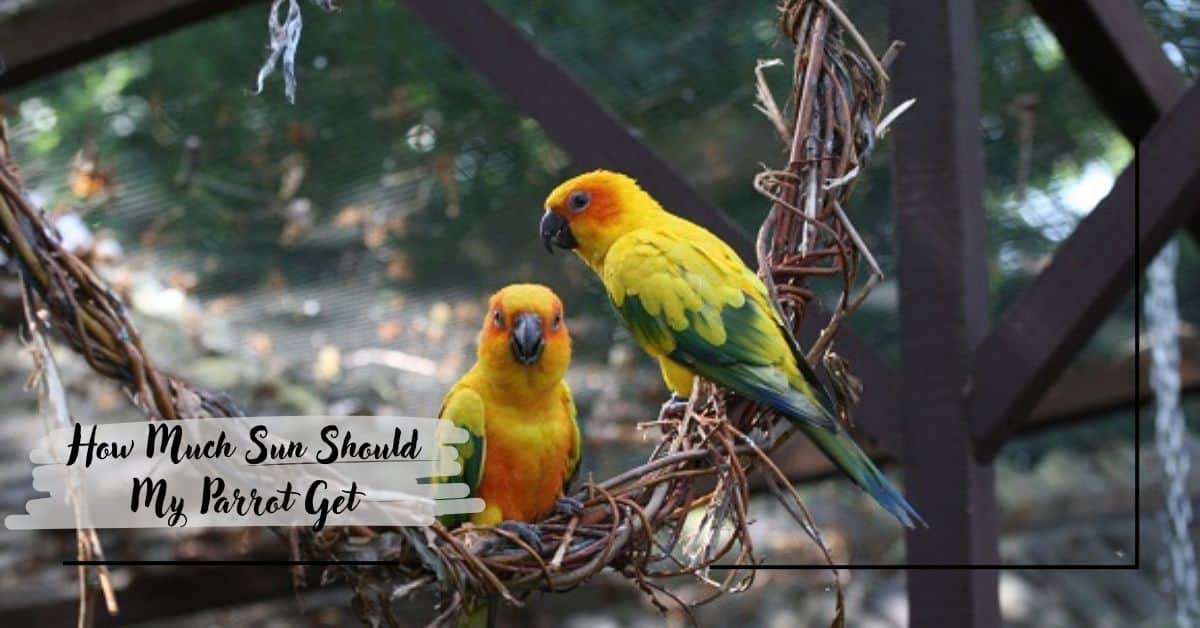Why Do Hawks Screech? Hawks screech for several important reasons that help them survive and communicate. Hawks screech to communicate, defend their territory, attract mates, and warn of danger. Their sharp calls are vital for survival, helping them interact with other hawks and respond to threats.
Imagine walking through the woods, and suddenly, you hear a sharp, piercing call from above—a hawk’s screech. This powerful sound isn’t just noise; it’s the voice of a majestic bird of prey, sharing its message with the world.
What Are the Reasons for Hawk Screeching?
Hawks are known for their sharp, piercing screeches, which serve various purposes. These vocalizations are essential for their survival, helping them communicate with other hawks, defend their territory, and even signal distress. The reasons behind hawk screeching include:
Communication:
Hawks screech to communicate with other birds, especially during mating season or when they are teaching their young to hunt.
Territorial Defense:
Screeching is a way for hawks to warn other birds or predators that they are entering their territory.
Alarm Calls:
Hawks may screech when they feel threatened, either by predators or human presence, to alert others of potential danger.
Mating Calls:
During the breeding season, hawks use screeching to attract mates, with the intensity and frequency of the call signaling the bird’s fitness.
How Do Hawks Use Screeching to Defend Their Territory?
Territorial defense is one of the primary reasons hawks screech. They are very protective of their hunting grounds and nesting areas, and they use loud, sharp calls to mark and defend these areas.
Warning Intruders:
A hawk’s screech serves as a clear warning to other birds and animals that they are entering a claimed territory. This can prevent confrontations by deterring potential rivals before they come too close.
Establishing Dominance:
The screech also helps establish the hawk’s dominance in the area, signaling strength and control over the territory.
Chasing Away Threats:
If an intruder does not heed the warning, the hawk may continue screeching while diving or chasing the threat away, using the call to reinforce the threat.
How Does Screeching Help Hawks Communicate?
Hawks rely on their screeches as a vital form of communication, especially when visual signals are not effective.
Mating Communication:
During the mating season, hawks screech to attract potential mates. These calls help in mate selection, with females often choosing mates based on the strength and frequency of their calls.
Parent-Offspring Interaction:
Parent hawks use screeches to communicate with their chicks, signaling when it is time to eat or teaching them how to hunt. Young hawks may also screech to call for their parents or to express hunger.
Group Coordination:
In some species, screeching helps coordinate group activities, like hunting or migration, ensuring that all members of the group stay in communication over long distances.

Why Do Hawks Screech When They’re Being Mobbed?
Hawks may screech when they’re being mobbed by smaller birds like crows or songbirds as a defensive response. This screeching often expresses distress, signaling the hawk’s frustration or fear. Additionally, the hawk may screech to intimidate the smaller birds, although this tactic is generally not effective against a determined group. In rare cases, the screech could serve as a call for backup from a mate or other nearby hawks, even though hawks usually do not depend on group defense.
What Causes a Hawk to Screech Continuously Throughout the Day?
Territorial Behavior:
A hawk may be continuously screeching to assert dominance over its territory, especially if there are other hawks or predators nearby.
Mating Season:
During the breeding season, hawks are more vocal as they try to attract mates. Continuous screeching may be part of this process.
Presence of a Threat:
If a hawk perceives a persistent threat, such as a human or another predator lingering near its nest, it may screech continuously as a warning.
Nesting Behavior:
When protecting a nest, particularly during the hatching period, hawks may screech frequently to deter any potential danger to their young.
Do All Species of Hawks Screech?
Not all hawks screech in the same way, and some species are more vocal than others.
Vocal Species:
Species like the Red-tailed hawks are known for their loud and frequent screeches, which are often heard throughout the day.
Less Vocal Species:
Other species, such as the Cooper’s Hawk, are generally quieter, using screeches less frequently and relying more on silent flight to hunt.
Species-Specific Calls:
The tone, frequency, and purpose of screeches can vary widely between species, with some using high-pitched calls and others using more guttural sounds.
Can Hawks Screech at Night?
Hawks are diurnal birds, meaning they are active during the day and rest at night. However, there are rare occasions when a hawk might screech at night.
Disturbances:
If a hawk is disturbed during its rest by predators, bright lights, or loud noises, it might screech as a response.
Urban Areas:
Hawks in urban areas, where there is more human activity at night, might occasionally screech in reaction to disruptions.
Which Birds Are Known for Screeching at Night?
While hawks are not typically nocturnal screechers, several other bird species are known for their nighttime vocalizations.
Owls:
Owls are the most famous night-time screechers. They use their eerie calls to communicate with other owls, establish territory, and during mating rituals. Owls have a wide range of vocalizations, from hoots to screeches, depending on the species and the purpose of the call.
Nightjars:
Nightjars are known for their distinctive calls, which can range from whistles to mechanical-sounding clicks and screeches. They are active at dusk and dawn, often filling the night air with their calls.
Herons:
While not strictly nocturnal, herons can be heard screeching at night, especially when disturbed or during migration. Their calls are often described as harsh and grating.
Frequently Asked Questions:
How Can You Tell What a Hawk’s Screech Means?
Different screeches can indicate various things, from defending territory to calling for a mate. Understanding the context and the specific sound can help interpret its meaning.
Do Different Hawk Species Have Different Screeches?
Yes, different species of hawks have unique calls. Each species uses its screech in specific ways related to its behavior and communication needs.
Can Hawks Imitate Other Bird Calls?
Hawks are generally not known for imitating other bird calls. Their screeches are typically distinct and used for their own communication purposes.
How Long Do Hawks Typically Screech For?
The duration of a hawk’s screech can vary. It might be a quick, sharp call or a prolonged series of screeches depending on the situation.
Do Hawk Screeches Change With the Seasons?
Yes, the frequency and type of screeches can change with the seasons, particularly during breeding season when hawks are more vocal.
How Can You Differentiate Between a Hawk’s Screech and Other Bird Calls?
Identifying the screech involves listening to its pitch, rhythm, and context. Hawk screeches are typically sharp and distinctive compared to other bird calls.
What Time of Day Are Hawks Most Likely to Screech?
While hawks are diurnal and screech mostly during the day, they can occasionally screech at dawn or dusk, particularly if disturbed.
How Do Young Hawks Learn to Screech?
Young hawks learn to screech from their parents. They practice their calls while they are still in the nest and improve their screeching skills as they grow.
Can Hawk Screeches Affect Their Hunting?
Screeching can sometimes affect hunting by alerting potential prey or rivals. Hawks must balance their need to communicate with their need to stay stealthy.
What Should You Do If You Hear a Hawk Screeching Near Your Home?
Hearing a hawk screech near your home is usually not a cause for concern. It’s a normal behavior related to their territorial or mating activities. If the screeching is excessive or persistent, it might be worth checking if there are other issues affecting the hawk.
Conclusion:
Hawk screeches are more than just noisy calls, they’re vital signals for communication, hunting, and defending territory. Next time you hear one, remember it’s the hawk’s way of navigating its world and staying connected with its surroundings.








